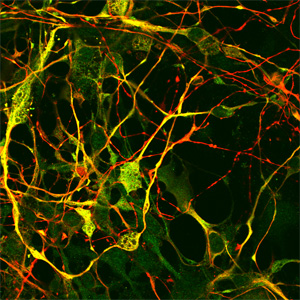
Intellectual disability (ID), mental retardation or (general) learning disability is a group of generalized disorders appearing before adulthood and affecting cognitive functioning and adaptive behaviors. Intellectual disability is defined as an intelligence quotient score under 70. The definition now includes both a component relating to mental functioning and one relating to individuals’ functional skills. Intellectual disability is subdivided into syndromic intellectual disability, in which intellectual deficits associated with other medical and behavioral signs and symptoms are present, and non-syndromic intellectual disability, in which intellectual deficits appear without other abnormalities.
Intellectual disability affects about 2–3 percent of the general population; 75–90% of the affected people have mild intellectual disability. Non-syndromic or idiopathic ID accounts for 30–50 percent of cases.9 About a quarter of cases are caused by a genetic disorder.
Many cases of ID are associated with recessive inheritance of the X chromosome defects, affecting males more heavily than females. Females with one affected X chromosome and one normal X chromosome tend to have milder symptoms. Unlike many other types of intellectual disability, the genetics of these conditions are relatively well understood and many genes have been identified to be causally related to ID. It has been estimated there are ~200 genes involved in this syndrome; of these ~100 have been identified.
X-linked intellectual disability accounts for ~16% of all cases of intellectual disability in males.
The iPS center is especially interested in studying the role of synaptic genes is this disorder and in comorbidity with other disorders in the focus of the center. We have currently run projects on RIMS1 (Arg844His) and several STXBP1 mutations.
2026 © iPS Center. All Rights Reserved. Privacy Policy | Terms of Service

